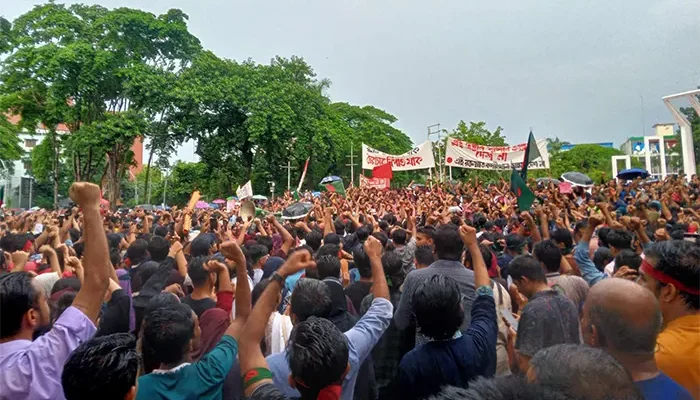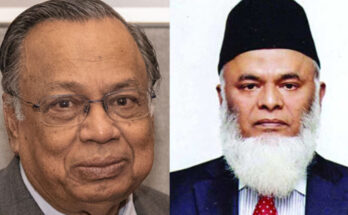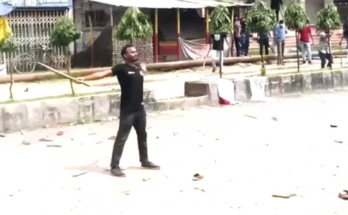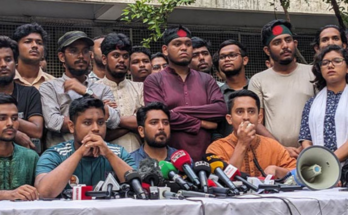Introduction
The anti-discrimination student movement in Bangladesh has announced new plans to intensify their protests. This includes a nationwide protest on Saturday, August 3, followed by a full-scale non-cooperation movement starting Sunday. This blog post analyzes the latest developments and the implications for the ongoing struggle for justice and equality.
Saturday Protests and Non-Cooperation Movement
Announcement Details: On Friday, Abdul Hannan Masud, one of the coordinators of the anti-discrimination student movement, made a public announcement via a video message. He called for a nationwide protest on Saturday to condemn the violent attacks on peaceful student and citizen protests.
Protests on Saturday:
- Date: Saturday, August 3
- Purpose: To protest against the violent repression of peaceful protests and to demand the fulfillment of their nine-point demands.
- Nature: Peaceful marches across the country involving students and citizens.
Non-Cooperation Movement Starting Sunday:
- Date: Beginning Sunday, August 4
- Purpose: To escalate the pressure on the government by initiating a non-cooperation movement.
- Nature: This involves a complete halt of cooperation with government activities, signaling a mass civil disobedience movement.
Context and Background
The anti-discrimination student movement has been actively protesting against the government’s quota system in public jobs, which they argue is unfair and discriminatory. These protests have been met with severe repression, including violence, arrests, and even deaths.
Goals of the Movement
The movement has outlined nine demands aimed at achieving fair treatment and justice for all citizens. These demands include:
- Abolishing the quota system: Ensuring equal opportunities for all citizens in public jobs.
- Justice for the victims: Holding accountable those responsible for the violence against peaceful protesters.
- Reforms in law enforcement: Preventing misuse of power by the police and security forces.
Public and International Reaction
The announcement has drawn significant attention both nationally and internationally. The public in Bangladesh has shown strong support for the movement, participating in various forms of protest and expressing solidarity. International human rights organizations have also condemned the violence against protesters and called for immediate reforms.
Conclusion
The planned protests on Saturday and the subsequent non-cooperation movement mark a crucial phase in the anti-discrimination student movement in Bangladesh. As the nation braces for these events, the call for justice and equality remains at the forefront of the struggle. It is essential for both the government and the international community to take note of these demands and work towards a peaceful and just resolution.





